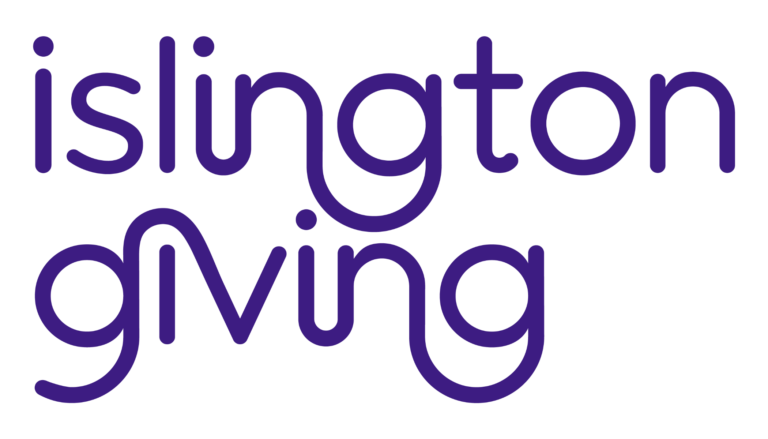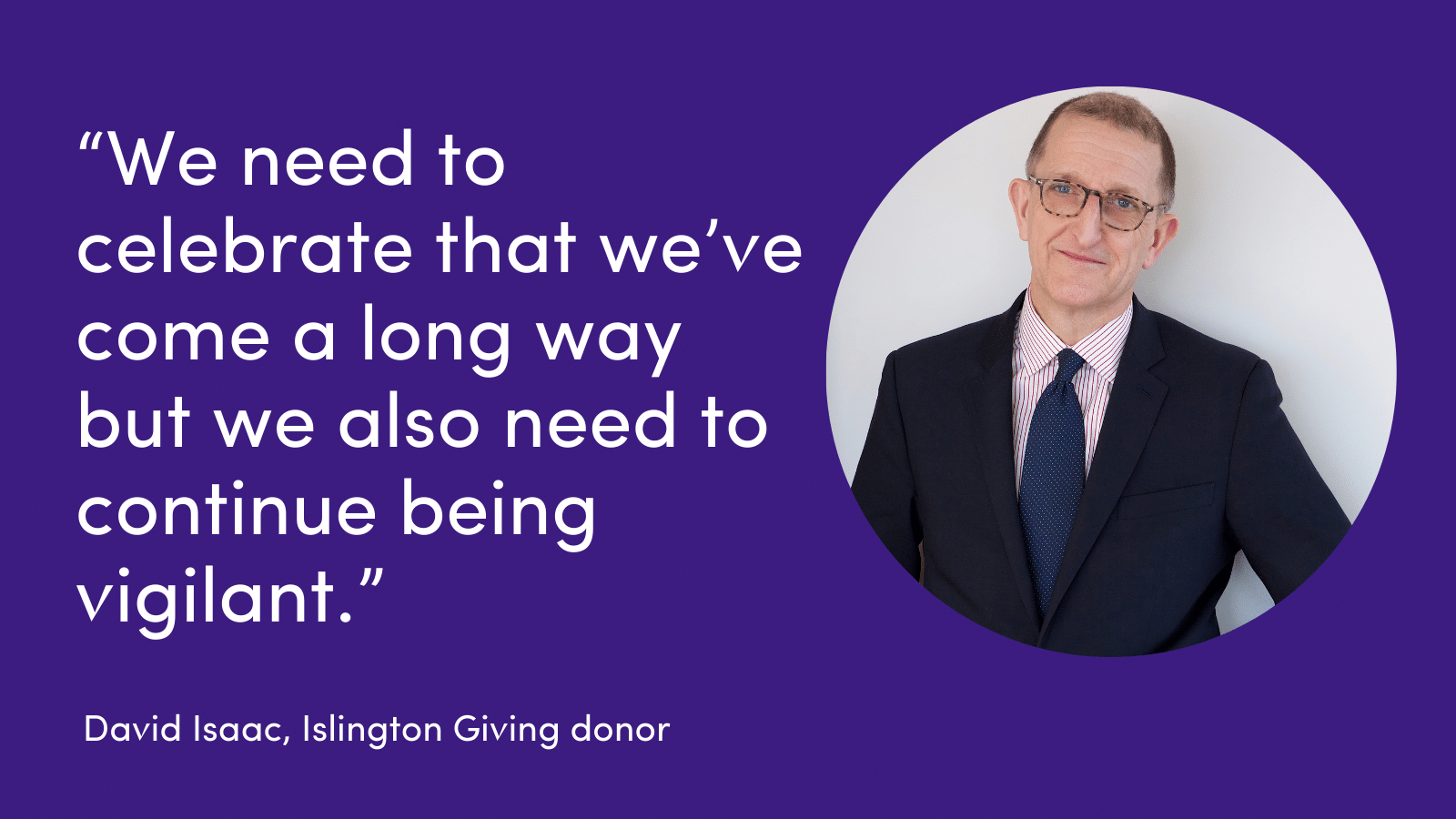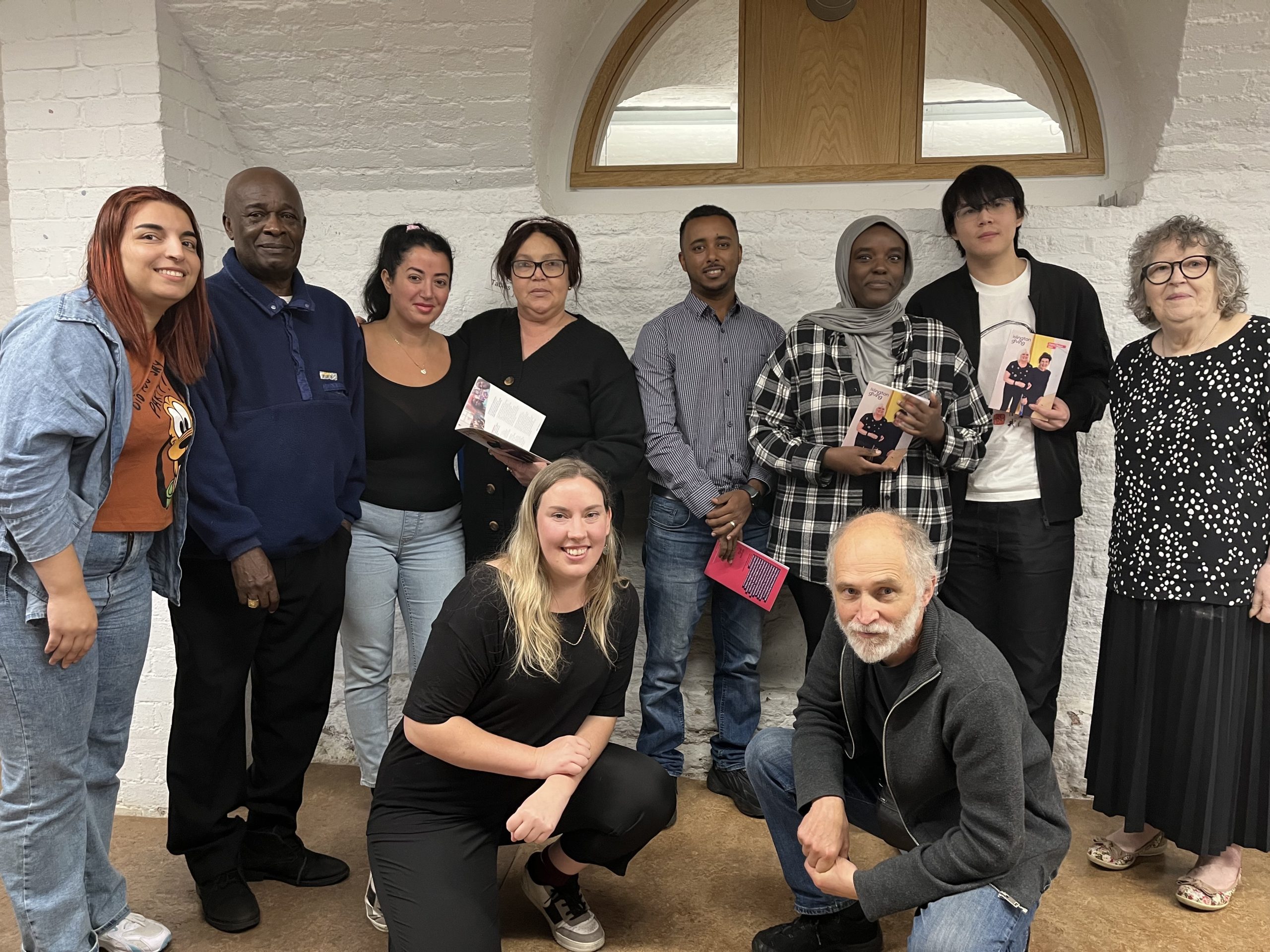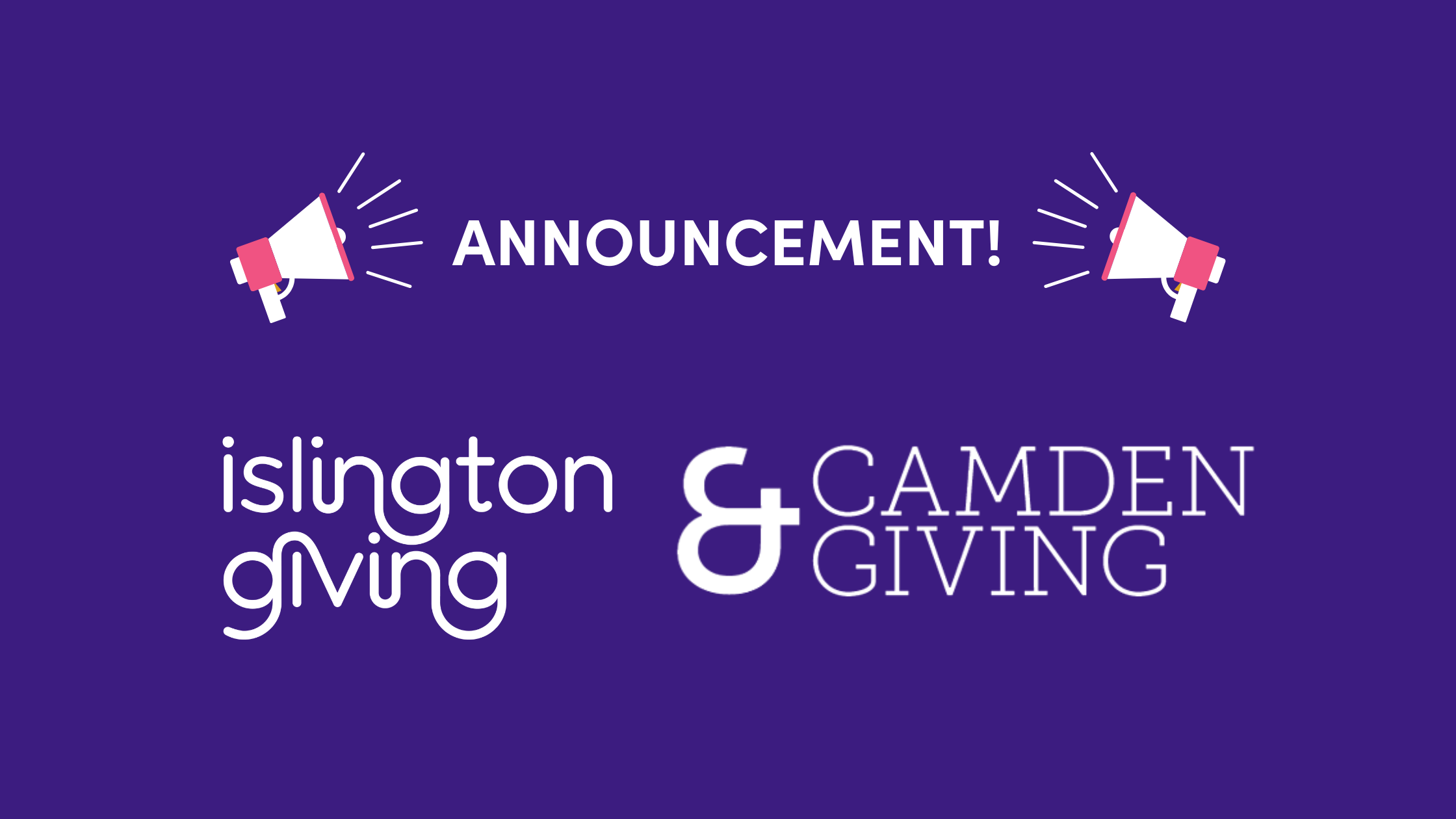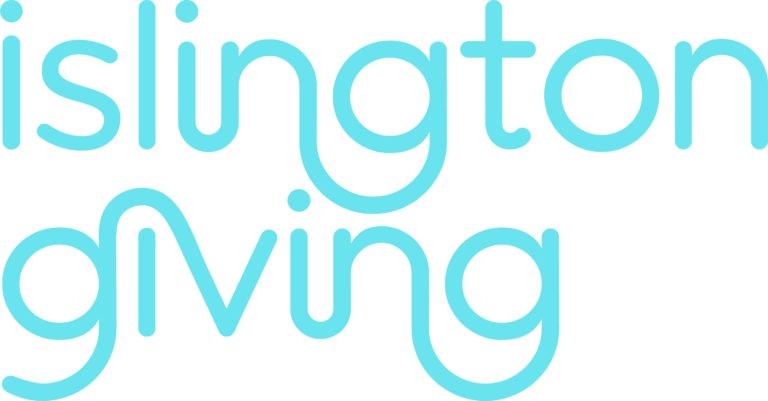David Isaac is an Islington resident, a lawyer, human rights advocate and someone who is passionate about the visual arts. He is also a long-standing Islington Giving donor and, for Pride month, we were delighted to talk to him about LGBTQ+ issues and history in Islington.
First of all, what would you like to tell us about yourself?
I’m a proud Islingtonian, lawyer and campaigner for human rights – and especially LGBT+ rights. My campaigning started when I got involved in supporting friends who were HIV-positive in the early 1980s, which led to me using my legal skills for the wider LGB community.
I was chair of Stonewall for ten years and during that time I am proud that we secured legal equality for LGB people. We made huge legal progress: it’s probably hard for younger people to imagine a time when it was completely lawful to discriminate against LBGT+ people, though in fact it was only thirty years ago and still fresh in the memory of those who are older. My human rights and equality work led to my appointment as chair of the Equalities and Human Rights Commission (EHRC), the national body that promotes equalities and human rights issues in the UK and internationally. I have just stepped down from my legal career of nearly 40 years, and my life is about to enter a new phase as I take on the role of Provost of Worcester College, Oxford. But Islington will remain my home.
Islington has a rich history with the LGBTQ+ community. Is there any specific moment or memory that you can recall?
I was a student in Oxford in the 1980s and used to stay regularly in London with friends in Duncan Terrace. There were two things that I associate with Islington’s gay history. The first was that Joe Orton used to live in Noel Road – just across from Duncan Terrace – and I had always been a fan of his plays and his defiant queer view of the world. The other thing is Chris Smith, MP for Islington and the first MP to come out publicly, in 1984. That was a big moment for those of us younger gay men who were living through the HIV pandemic. It was really exciting that as an openly gay MP Chris could not only represent Islington but also be a voice in parliament for the gay community.
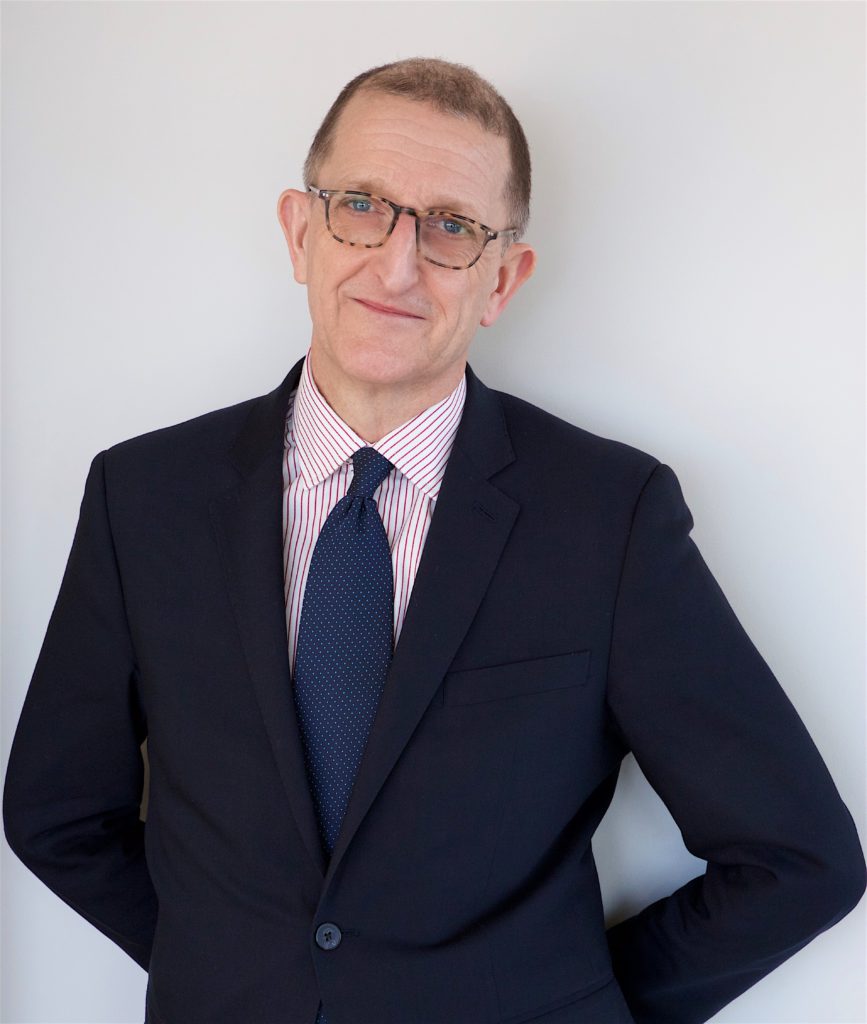
David Isaac, Islington resident, a lawyer, a human rights advocate and a long-standing Islington Giving donor.
Research and evidence from local groups shows that LGBTQ+ people still face discrimination and are more likely to experience mental health issues. What are your thoughts on the state of equalities of the LGBTQ+ community?
Whilst the LGBTQ+ community has made huge progress in terms of legal equality, I do think it’s all too easy for people to say “Job done.” Things have certainly shifted a lot culturally: for example, many people now know someone – a family member, work colleague or neighbour – who is in a civil partnership or married to a same-sex partner. LGBTQ+ people are now prominent in the media (though still not in sport). This represents real progress in terms of the cultural changes we dreamt about in the 70s and 80s. But at the same time, the Covid pandemic has had a real impact on many gay people: younger LGBTQ+ people who have had to go back into the closet while forced to be at home with their parents during lockdown; or older LGBTQ+ people who are in homes or dependent on others for support. Many members of our community have experienced significant mental health issues during this tricky time.
Many young people still face bullying at school on a regular basis. And the treatment of trans people in this country remains an area of concern. Hateful negativity and harassment is all too frequently directed towards them – perhaps even more so now that there is greater visibility for trans people as a result of the current debate about trans rights, which has become unpleasantly polarized. For those reasons, I am not complacent about the progress the LGBTQ+ community has made: we always need to be vigilant to ensure we hold on to all we have achieved.
I love rainbow flags and it’s great to see many recent converts to LGBTQ+ equality flying them but we really do need to ensure that these businesses celebrate and promote all diverse people within their corporations, not just during June but every day of the year
Why do you think it is important to continue celebrating Pride?
Pride is an opportunity once a year to celebrate the LGBTQ+ community, all that we’ve achieved and all that we contribute to society. For me, like many people of my generation, Pride was predominantly a political statement. So I’m ambivalent that it has become so commercialised. I love rainbow flags and it’s great to see many recent converts to LGBTQ+ equality flying them – especially in the City – but we really do need to ensure that these businesses celebrate and promote all diverse people within their corporations, not just during June but every day of the year. In particular, in the light of the Black Lives Matter movement, we need to see that their commitment to inclusivity and diversity is wider and deeper than an annual feel-good parade.
Have you faced any challenges or barriers in your personal/professional life that you’d like to share?
I have been lucky that I haven’t faced much open discrimination – or not that I’ve been aware of. When I became a solicitor in the 1980s, it was much harder to be accepted as an openly gay man and get promoted. However, because close friends of mine died of AIDS I decided that it was important to come out and get involved in protecting the rights of people with HIV. I think you only secure meaningful change by being bold, and at a time when people were being sacked for being gay or HIV+ I took the view that people like me needed to speak out and address the extent of the discrimination that people faced. I have personally benefitted from many of the legal changes that were introduced during my career, so I hope that in turn I have been able to be a role model for young LGBTQ+ people in my own workplace.
On reflection, any advice you’d like to share with the younger LGBTQ+ community in Islington today?
I would encourage everyone to be brave and live their most authentic life, but also to have fun and to hold close those who are dear to them. I think we are lucky to live in this wonderful city and whenever I see a young gay couple holding hands in the street, I’m proud of how inclusive and accepting it has become. My partner always nudges me and reminds me that my work with Stonewall helped make it possible for younger LGBTQ+ people to be themselves with confidence. But I’d encourage them to know their gay history, their politics, and how these freedoms were won.
I feel lucky to live in Islington and to be part of such a vibrant community.
As an Islington resident, how would you describe the borough in a word or a sentence?
It feels inclusive, lively, varied and friendly. But at the same time it’s a borough of extremes – there are many rich and affluent people who live in Islington and can take advantage of all it has to offer, but also many disadvantaged people who live here too. Those of us who are privileged need to be mindful of those who are less advantaged and who need help to achieve their potential.
This leads well into the next question, what attracted you to Islington Giving and why did you decide to become a supporter?
I feel lucky to live in Islington and to be part of such a vibrant community. I was the first in my family to go to university, and I was lucky to get state support to do that. My own background and personal journey makes me conscious of societal inequality, so I support Islington Giving to make a difference to the lives of others. I like the fact that Islington Giving supports a wide range of projects, especially for young people. You have also done some really good work to support the community during the pandemic.
Where is your favourite place in the borough?
There are so many great spots. I love it around Myddelton Square and Amwell Street. It’s a little haven of peace in the middle of Islington, it’s quiet and central and there’s a mix of people who have lived here for a very long time – and seen all the changes in the borough – and others who are recent arrivals. There’s a strong sense of neighbourhood and community, and I’m very pleased to be part of that.
Is there anything else you’d like to add?
I would certainly like to encourage people to support the work that you are doing at Islington Giving. One of the things I’ve learnt from being chair of the EHRC is that we all need to try to develop greater empathy for people – especially those who are different to us and come from different cultures and backgrounds or identify differently. I’m confident that if we all developed greater empathy we would be a less divided and defensive society.
Celebrating #PrideMonthIslington
Thanks to decades of work and resilience of LGBTQ+ rights organisations and individuals, Islington is today a diverse borough that feels mostly welcoming and inclusive. However, the pandemic has had devastating effects on the mental health of LGBTQ+ people. Read More.
